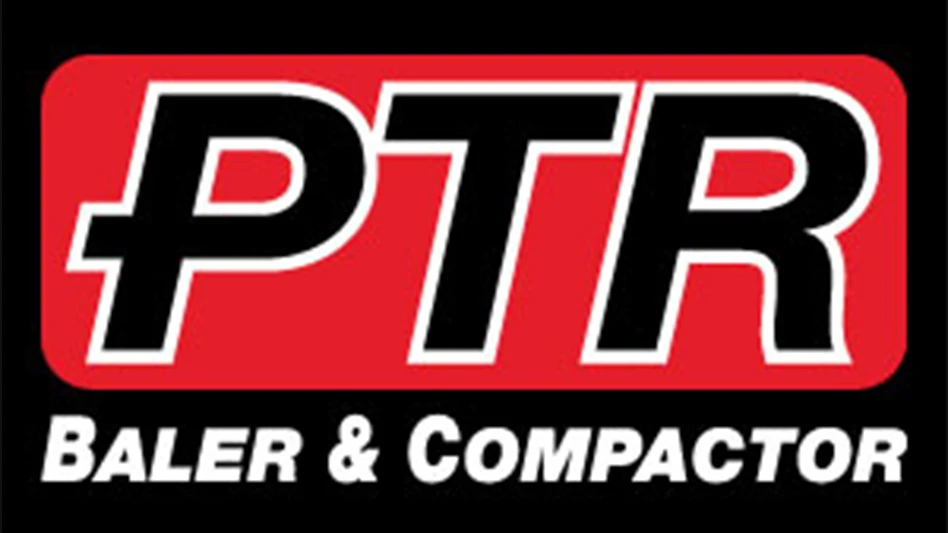
At some point, waste and recycling services could need to be procured from a third-party vendor. Contracting services is a local decision based on budgetary and managerial options, available resources, current services and new services to be provided. The contract defines the rules, policies and procedures, including responsibilities for each party, and addresses how they will engage the other when problems arise.
Most commonly, jurisdictions and local governments use contracts to provide services through third-party agreements for curbside collection, transfer station operation, transportation from a transfer station or processing facility and landfill services. Private companies can perform any or all services typically provided by a local government entity.
The contracting process should be concise, complete and transparent, with the understanding that every project has unique considerations.
A well-developed procurement should ensure innovative and serious proposals in response and needs to include significant background about the issuing agency and its history regarding solid waste management. The procurement needs to put forth a realistic schedule and detailed scope of services, risk allocations, size, future expansion and cost expectations.
Assumptions regarding project parameters from material quantity and composition, site data and facility plans, funding mechanisms and applicable regulations need to be clearly defined. The document also should include clear submission requirements, evaluation parameters and contact information. Lastly, strong procurement is best when it includes a well-developed draft service agreement with insurance and bonding requirements.
Competitive procurement processes often include two stages—a request for qualifications (RFQ) and/or a request for proposals (RFP), including background information, minimum qualifications, operational details, evaluation criteria for the responses, references and other project-specific details. The RFQ is valuable in identifying qualified proposers before the release of the RFP, allowing local officials to concentrate on companies with proven abilities to successfully and safely complete a project.
Contract vs. franchise
In a contracted collection system, a jurisdiction typically designates one or more contract service areas, develops a scope of services, conducts a procurement process or negotiates with haulers to provide designated services. The jurisdiction then enters a contractual arrangement with the selected hauler to be the exclusive provider in a service area for a specified period. The municipality pays the hauler directly for services rendered, and funds to pay the contract costs can be collected in several ways, such as general fund contributions, service fees or assessments or variable rate fees charged to generators.
Under a franchised collection system, one or more franchise service areas could be defined, and designated haulers—selected through procurement, negotiation or an application process—are awarded the right to provide collection services within the franchise area. Agreements can be exclusive, where only one hauler is allowed to operate within a defined area, or nonexclusive. The number of haulers per service area is generally limited by the franchise agreement.
Typically, under the terms of the franchise agreement, collection services fees are defined. Unless collection is mandatory, generators can then choose to sign up with a franchise hauler or self-haul material. Generally, under franchise systems, generators pay franchise haulers directly, and the cost of billing, collections and marketing is borne by the franchise haulers. The sponsoring government also could receive a franchise fee from the hauler.
Government contracts cover basic services but also tackle issues that can affect services, the community and budgets. For instance, in a contract for residential curbside collection, requiring several reserve trucks for use during maintenance and repairs on the daily fleet is imperative for uninterrupted service. Dirty collection trucks or equipment in disrepair are a direct reflection on the local government.
Active, regularly completed audits are critical to the ongoing success of contracts with private entities. Annual or biannual hard-house counts could be necessary from the contractor or the jurisdiction to ensure billing is done accurately and fairly.
A number of questions should be asked when deciding to provide services using in-house resources or contracting with a partner:
- Where are improvements or changes in the services provided that need to be implemented?
- Can those improvements or changes be made with one third-party contractor or will it take more than one? (If both are options, then be prepared to consider all choices.)
- Is there an opportunity to save taxpayer dollars by contracting out a function that is used less often, for example, heavy brush, bulky items and/or white goods?
- If a new service is being added, what is the most economically responsible method to provide that service based on the community’s expectations?
Key elements of successful agreements
The appropriate contract terms are essential to ensuring satisfaction with privately provided services.
When developing the scope of services for the contract, a number of elements should be considered:
- Frequency of collection. How often will collection services be offered? Will the schedule vary seasonally?
- Type of collection. What types of services will be covered—residential only or commercial accounts as well? Will material be bagged or will different sized containers be used?
- Materials to be collected. Does the agreement cover recycling collection? What materials will be targeted and what setout requirements will be used? Will bulky waste collection services be included? What about yard waste?
- Number of customers. Make sure the agreement allows for periodic adjustment of house counts to ensure the proper count of those receiving service is monitored and the local government is paying only for those stops being serviced.
- Service levels. Will setouts be curbside, alleyway or backyard? What special provisions will be included for serving senior citizens or physically challenged residents?
- Start and end times. If there are neighborhood noise or traffic concerns, specifying earliest start times and latest end times is important.
- Holiday collection. Will material be collected on holidays or will those collections be rescheduled? This consideration is particularly important in communities with once-per-week collection and Monday as a service day.
- Missed pickups and response times. By establishing a timeframe for responding to missed pickups, local governments can maintain customer satisfaction and implement specified penalties if performance terms are not met.
- Equipment age/type. Specifics about maximum vehicle age can ensure equipment is in reasonable condition. It also is important not to limit contractor ingenuity with overly stringent requirements. If new equipment becomes available, local governments should avoid getting locked into outdated contract language that precludes the use of other equipment.
- Crew requirements. Contracts should address appropriate training, licensure and substance abuse policies, at minimum. Other language can address interactions between haulers and customers. For example, language could be included to ensure crews are polite and courteous, return carts to the point of set-out, avoid damaging lawns and more.
- Complaint handling. Usually, communities that want to get out of the collection business also want out of the complaint business, but complaint handling is an important aspect of a contract. Will all complaints be addressed to local officials and brought to the hauler through designated communication mechanisms? Will complaints be directed to the hauler, which will provide regular reports to local officials? Tracking complaints can provide information about service quality and public information needs. Public information. Who will be responsible for communicating set-out requirements, collection day and holiday information to the public? Who will be responsible for notifying residents of improper set-outs? If haulers are required to handle public information, minimum standards should be set, and the community should review materials for accuracy.
- Containers. If roll-carts, recycling bins or special bags are to be used, who will provide them? Who is responsible for delivery? How will containers be maintained or replaced?
- Additional services. Special services should be specified in the agreement, including backup capacity, special community cleanups, emergency support and other local services.
- Performance guarantees and insurance requirements. Bonding requirements and penalties should clearly be specified in the contract agreement along with requirements for insurance coverage and indemnification.
- Pricing and escalation considerations. Pricing should be fixed for each service, even for infrequently provided services such as emergency response. Unit pricing (e.g., cost per household per month) is common. Charges often are bundled, which can result in higher charges than if kept unbundled. Escalation of unit prices can be unbundled to apply different escalation factors to various cost components, such as labor, fuel/tires, debt service (no escalation) and market indices.
Contract components
Municipal contracts should include detailed items:
- Scope of work. What does the local government need from a third-party contractor?
- Contract terms. Contracts often are made with a long-term goal of locking in pricing and other needs for an extended time. Initial terms often are five to 10 years, with options to extend.
- Definitions. The language of industry is common, but sometimes terms mean different things in different areas. A list of definitions ensures clarity.
- Duties, responsibilities and obligations. Include a section clearly outlining the responsibilities of the local government and the contractor. Each portion of the contract should be clear as to which party is responsible for which tasks and the consequences associated with not meeting those requirements.
Municipalities also should consider many factors when detailing a contractor’s responsibilities:
- Compensation. Identify which party is responsible for each piece of the operation. Charges often are performance-based, for instance, based on the number of households serviced or weight of materials collected. The Consumer Price Index often is used for increasing compensation for contractors.
- Performance specifications and standards. Set service expectations and include a schedule of charges for deficiencies.
- Audit. Documentation should be audited regularly at a frequency defined in the contract. Auditing services provided, timeliness of such and the number of complaints gives a concise picture of the contractor’s performance.
- Representations and warranties. Identify how to move risks associated with the project by defining the efforts of the local government to comply with and support the contractor.
- Insurance. Contractors must procure and maintain insurance coverage for a defined amount of liability for the duration of the contract. Worker’s compensation, comprehensive or commercial general liability and pollution and environmental liability are the categories used most.
- Health and safety. Contractors should be required to meet the standards of the Occupational, Safety and Health Administration, or OSHA, and any regulations under federal and state Department of Transportation rules. Contracts should include the ability for local jurisdictions to review a contractor’s audited safety training records and require notification of any negative regulatory notices. The contract also should extend to any partner or subcontractor of the service provider. Prohibitions. This section often is required to confirm no obstructive behavior gives a contractor added benefits, gratuities or kickbacks in addition to daily duties associated with fulfilling the contract.
- Performance bond. The amount of a performance bond is determined by the contracted work and agreed-upon performance expectations. Typically, the bond remains in effect for a period after the expiration date of the contract.
- Default. This occurs when a contractor fails to obtain and maintain the required performance bond, if applicable, or files for bankruptcy or insolvency. Default also can occur if the contractor is unable to fulfill the terms of the service contract.
Successful procurement of third-party services is a process not to be taken lightly. Following the steps provided will generate innovative proposals to ensure win-win partnerships.

Explore the April 2025 Issue
Check out more from this issue and find your next story to read.
Latest from Recycling Today
- Recyclers likely to feel effects of US-China trade war
- BCMRC 2025 session preview: Navigating battery recycling legislation and regulations
- Yanmar Compact Equipment North America appoints new president
- LYB publishes 2024 sustainability report
- Plum Creek Environmental acquires Custom Installation LLC
- Avis introduces Harris American Co.
- International Paper in talks to divest 5 European box plants
- Recycled PP from Polykemi, Rondo Plast used in flood protection product





